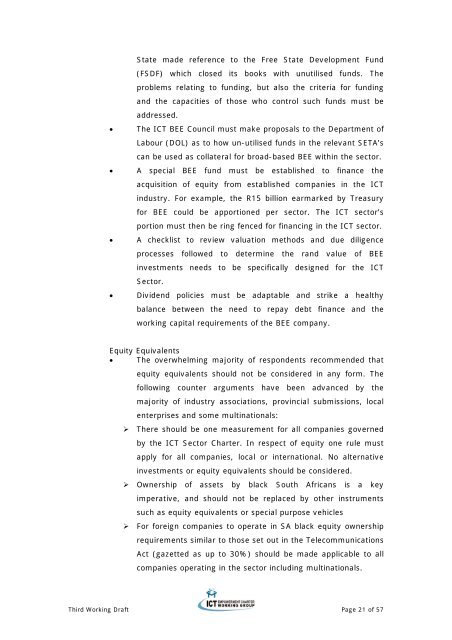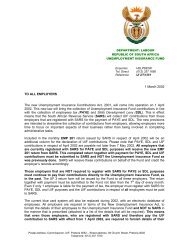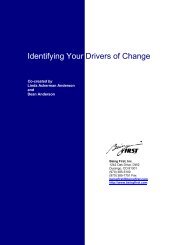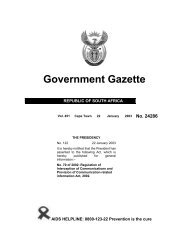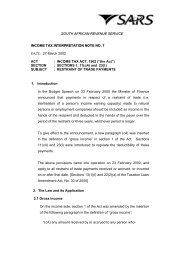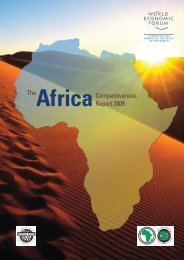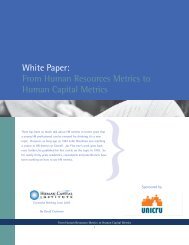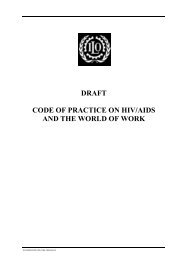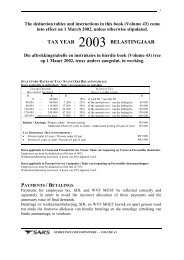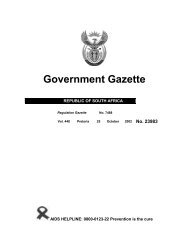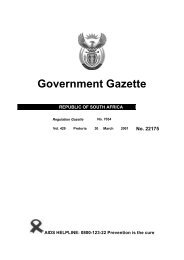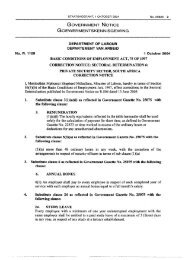THE ICT CHARTER
THE ICT CHARTER
THE ICT CHARTER
Create successful ePaper yourself
Turn your PDF publications into a flip-book with our unique Google optimized e-Paper software.
State made reference to the Free State Development Fund<br />
(FSDF) which closed its books with unutilised funds. The<br />
problems relating to funding, but also the criteria for funding<br />
and the capacities of those who control such funds must be<br />
addressed.<br />
• The <strong>ICT</strong> BEE Council must make proposals to the Department of<br />
Labour (DOL) as to how un-utilised funds in the relevant SETA’s<br />
can be used as collateral for broad-based BEE within the sector.<br />
• A special BEE fund must be established to finance the<br />
acquisition of equity from established companies in the <strong>ICT</strong><br />
industry. For example, the R15 billion earmarked by Treasury<br />
for BEE could be apportioned per sector. The <strong>ICT</strong> sector’s<br />
portion must then be ring fenced for financing in the <strong>ICT</strong> sector.<br />
• A checklist to review valuation methods and due diligence<br />
processes followed to determine the rand value of BEE<br />
investments needs to be specifically designed for the <strong>ICT</strong><br />
Sector.<br />
• Dividend policies must be adaptable and strike a healthy<br />
balance between the need to repay debt finance and the<br />
working capital requirements of the BEE company.<br />
Equity Equivalents<br />
• The overwhelming majority of respondents recommended that<br />
equity equivalents should not be considered in any form. The<br />
following counter arguments have been advanced by the<br />
majority of industry associations, provincial submissions, local<br />
enterprises and some multinationals:<br />
‣ There should be one measurement for all companies governed<br />
by the <strong>ICT</strong> Sector Charter. In respect of equity one rule must<br />
apply for all companies, local or international. No alternative<br />
investments or equity equivalents should be considered.<br />
‣ Ownership of assets by black South Africans is a key<br />
imperative, and should not be replaced by other instruments<br />
such as equity equivalents or special purpose vehicles<br />
‣ For foreign companies to operate in SA black equity ownership<br />
requirements similar to those set out in the Telecommunications<br />
Act (gazetted as up to 30%) should be made applicable to all<br />
companies operating in the sector including multinationals.<br />
Third Working Draft Page 21 of 57


